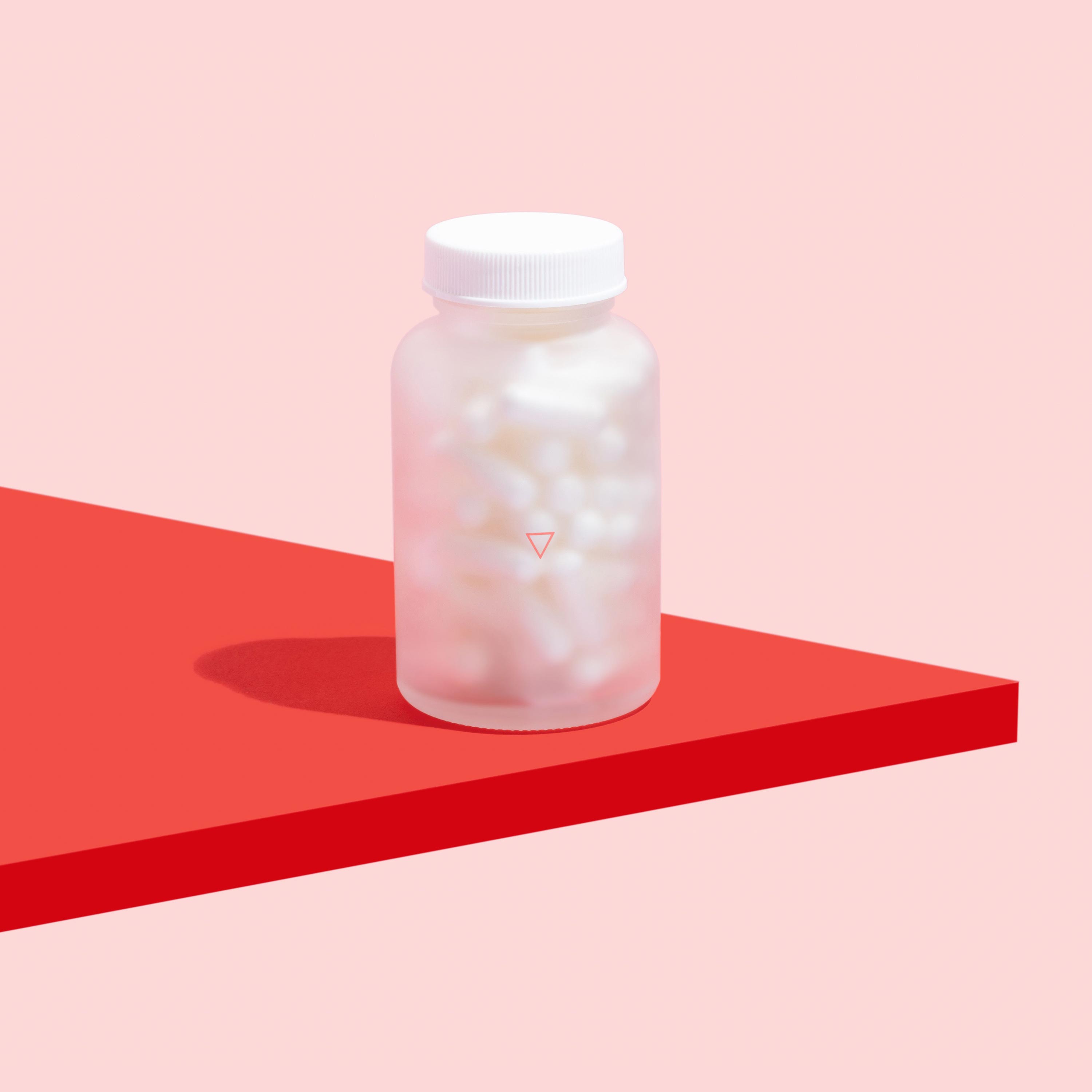
What Does Herpes
Look Like?
Published on December 30, 2021
Updated on April 21, 2025
Written by Kathleen Morrison
Medically Reviewed by Andrea Sleeth WHNP-BC, MSCP
Let’s talk about herpes—because the more you know, the less stressful it feels. Herpes usually shows up as small blisters or sores around the mouth or genitals, but not everyone experiences noticeable symptoms. And if you do spot something? No need to panic! Learning what herpes looks like and how it spreads can help you feel more in control of your health.
There’s also a lot of confusion out there—like whether you can catch herpes from sharing drinks (spoiler: not likely) or how to navigate close contact. That’s why it’s so important to make the conversation clear, judgment-free, and as stress-free as possible. Whether you’re dealing with symptoms, have questions, or just want peace of mind, we’ve got your back with discreet, accessible care.
Understanding Herpes and its Causes
The word herpes tends to make people nervous—but it really doesn’t have to. The more you know, the less intimidating it feels. The herpes simplex virus (HSV) is super common (like, really common), and understanding how it works can help you make informed choices about your sexual health—without the unnecessary stress.
What is Herpes?
Herpes is a viral infection that sticks around for life, but that doesn’t mean it’s always active.
There are two main types: HSV-1 (often linked to cold sores) and HSV-2 (commonly associated with genital herpes).
But here’s the twist—either type can show up in either area. The virus spreads through skin-to-skin contact or direct exposure to bodily fluids, and not everyone who has it will ever see a symptom. Some people get itchy or painful sores, while others never notice a thing.
How does it spread?
Herpes is all about timing. It can spread through kissing, sharing things like lip balm, or sexual contact—even when there aren’t any visible sores. That’s because of something called asymptomatic shedding (aka the virus can be active in the skin without making itself obvious). This is why so many people have herpes without realizing it!
How to Spot Herpes
Ever had a random tingle, bump, or itch and immediately spiraled into a Google search? Yeah, we’ve all been there. Herpes infection symptoms can be super subtle or more noticeable, and they don’t always look the way you’d expect.
The good news? Knowing what to watch for—whether it’s oral or genital—can help you feel more in control of your body and your health.
Early Signs of Herpes
Herpes doesn’t necessarily make a dramatic entrance.
For some, the first signs of herpes are a tiny itch, tingle, or burning sensation in one spot. Others might feel a little sore, get a low fever, or just know something feels off.
Then, small, fluid-filled blisters might appear on the mouth, genitals, or nearby skin. Usually, these blisters burst, may leak a little clear fluid, and eventually scab over. At this stage, the virus is more likely to spread through direct contact—so heads up!
A lot of people mistake herpes sores for pimples, ingrown hairs, or even chafing. If you ever notice an unusual bump or recurring discomfort, it’s worth checking in with a healthcare provider for clarity (and peace of mind).
Mouth vs. Genitals
-
Oral herpes (HSV-1): Typically shows up around the lips and mouth. Cold sores can be annoying (especially when you just want to eat or chat in peace), but they usually heal on their own.
-
Genital herpes (HSV-2): Typically found in the groin or anal area. Even small sores can be itchy or painful, especially if they rub against clothing.
But here’s the kicker: Either strain can show up in either place, and symptoms aren’t one-size-fits-all. Some people get frequent herpes outbreaks in the same spot, while others barely notice a thing. If you’re ever unsure, a quick chat with a healthcare provider can help you figure out what’s up—because your sexual health should never be a guessing game.
Some may also experience sores in other areas, including their fingers, nailbeds, or even their eyes.
Getting Herpes Tested
Getting tested isn’t as scary as it sounds—and knowing for sure can bring some serious peace of mind. Whether you’re dealing with an active sore or just some lingering questions, a quick test can give you clear answers and help you figure out your next steps.
How testing works
There are two common ways to check for herpes:
- Swab test: If you have an open sore, a healthcare provider can take a quick sample to see if the herpes virus is present. If there’s enough virus in the sample, the test can even tell you whether it’s HSV-1 or HSV-2.
- Blood test: If you don’t have an active sore but still want answers, a blood test can check for herpes antibodies—aka signs that your body has already met the virus. Timing is key here, though! If you test too soon after exposure, your body might not have built up detectable antibodies yet, which could lead to a false negative. A quick chat with a healthcare provider can help you decide when to test.
Even if symptoms are mild (or totally absent), a confirmed diagnosis can help you take charge of your sexual health, explore prescription treatment options, and move forward with confidence.
Wait… Could it be something else?
Not every bump or itch means herpes! Ingrown hairs, razor burn, and even fungal infections can look suspiciously similar. Skin conditions like eczema or psoriasis can also mimic an outbreak.
If you’re dealing with persistent irritation, sores that keep coming back, or anything that feels off, getting checked out can clear up the mystery. The sooner you know what’s actually going on, the sooner you can take action.
Herpes Treatment Options
So, you’ve got a herpes diagnosis—now what? First things first: You’re not alone, and managing herpes is totally doable. Whether you’re dealing with a flare-up or looking for long-term options, there are plenty of ways to keep things feeling good and stress-free.
Prescription antiviral medication
If you’re looking for a way to help make herpes outbreaks shorter and less intense, prescription antiviral meds for genital herpes or prescription antivirals for cold sores, like acyclovir, valacyclovir, or famciclovir, can be a game-changer.
Some folks take them only when they feel a flare-up coming on, while others go for a daily dose to keep things calmer long-term. Your body, your choice!
A quick chat with a healthcare provider can help you figure out the best option for you. Just be sure to mention any other meds you’re taking so everything works smoothly together.
Wisp treatment options are available only after consultation with a licensed medical professional. You should consult with your healthcare provider before starting a new supplement or treatment regimen. Individual results may vary.
Everyday comfort
Even with medication, a little extra care can go a long way. Try these simple tricks to help keep things feeling good:
- Warm compresses: Soothe any soreness and help your body heal comfortably.
- Loose-fitting clothes: Let everything breathe and avoid unnecessary irritation.
- Gentle cleansing: Keep things fresh with mild soap and water—no harsh scrubbing needed!
- Mindful stress management: Meditation, exercise, and even a solid Netflix binge can help. Stress can wake the virus up, so finding ways to chill out is always a plus.
- Sleep + nutrition: A well-rested, well-fed body just feels better. Bonus points for immune-boosting foods!
Some people also explore natural remedies—results vary, but as long as something feels good for your body, it’s worth a try. The key is figuring out what works for you.
Keeping Things Safe
If you’re living with herpes, keeping partners in the loop and making empowered choices about intimacy can help everyone feel good—physically and emotionally. Herpes is super common, and with a few simple habits, you can still have an amazing sex life. It’s not about avoiding touch—it’s about making choices that feel right for you and your partners.
Smart habits for safer intimacy
- Keep it real with your partners. Open, honest convos about your status, any symptoms of genital herpes you've experienced, and what feels good for both of you build trust and set clear expectations.
- If there’s an active outbreak, hit pause. When sores are present, the virus is more likely to spread. Giving your body time to heal and pausing on intimacy (including oral sex) can help keep everyone comfortable.
- Wash your hands. Sounds simple, but if you touch a sore or apply meds, a quick wash before touching other areas keeps the virus from traveling.
- Regular check-ins with a doctor = peace of mind. Whether it’s for managing symptoms or just staying in the know, a little extra info never hurts.
Why barriers matter
Condoms and dental dams help by covering areas where genital herpes sores might show up. They don’t create a magic force field, but they do lower the chances of coming into contact with the virus.
Since herpes can be present on skin that barriers don’t cover, it’s a good idea to combine them with other mindful habits, like paying attention to outbreak timing. And hey—checking for any rips or tears before getting down to business? Always a solid move.
At the end of the day, intimacy is about connection, comfort, and confidence. A little knowledge goes a long way in making sure you and your partners feel good about the choices you’re making together.
Living With Herpes
Getting a herpes diagnosis might feel like a plot twist, but it definitely doesn’t mean life hits pause. Millions of people live their best lives with herpes—dating, thriving, and doing all the things they love. Whether you’re figuring out what this means for you or just looking for ways to manage symptoms, know this: you’re in control, and you’re absolutely not alone.
Ditching the stigma and finding support
Let’s be real—the hardest part of herpes is often the unnecessary shame that comes with it. There’s still a lot of stigma out there, but herpes is just a skin condition with a PR problem. And guess what? It doesn’t define you.
Building a solid support system can help make the emotional side of things easier. Whether that’s talking to a therapist, joining an online community, or just confiding in someone you trust, you don’t have to process this alone. Even simple self-care moves—like journaling or practicing mindfulness—can help reframe your mindset and remind you that herpes is just one tiny piece of your overall health.
Long-term Herpes care
Managing herpes is all about what feels right for you. Some people take daily prescription antivirals for herpes to keep outbreaks in check, while others treat outbreak symptoms only when they pop up.
Tracking patterns—like stress, sleep, and diet—can also help you recognize what might be triggering flare-ups so you can adjust accordingly. Think of it as getting to know your body on a deeper level. There’s no one-size-fits-all approach, but with a little time, you’ll figure out what works best.
Share the Kiss, Not the Cold Sore
Herpes might come with a few unexpected bumps (literally and figuratively), but with the right info and a solid game plan, managing it becomes second nature.
At Wisp, we’re here to make things easy. No awkward waiting rooms, no judgment—just fast, discreet care that fits into your life. Whether you need expert advice, meds on your terms, or just a reminder that herpes is way more common than people think, we’ve got you.
Herpes is just one part of your health—it doesn’t define you. And when you’ve got the facts, a plan, and the right support? You’re in control.
This blog post is for informational and educational purposes only and should not be taken as professional advice. Always consult with a qualified professional before making any decisions based on the information provided here.




